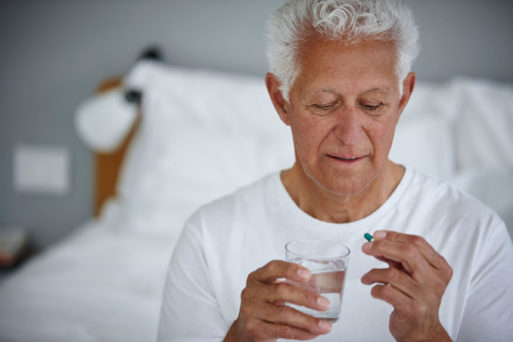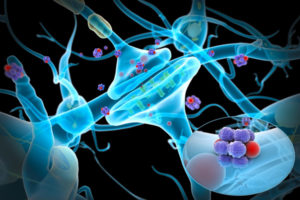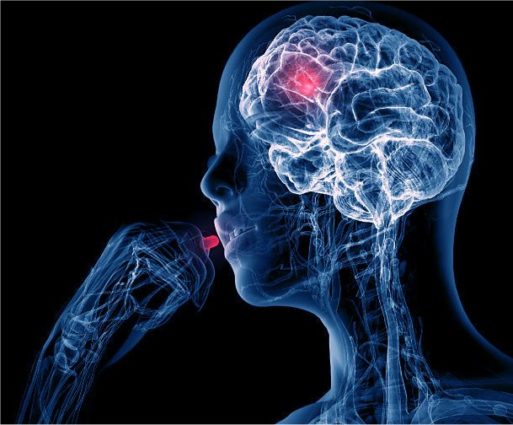For decades, scientists have been aware of a phenomenon known as the “placebo effect.” Simply put, the placebo effect occurs when a treatment produces a positive result even when it isn’t “real treatment” at all.
For example, researchers routinely test new therapies in “randomized, double-blind, placebo-controlled trials.” In these studies, a computer randomly divides research subjects into two (or more) groups. One group receives the new treatment. The other group receives a placebo, which may be a sugar pill, an injection of sterile saline, or even “sham” surgery. Neither the researchers nor the subjects know which group is which (hence the term “double blind).
In nearly every study, some degree of placebo effect occurs. That is, patients in the placebo group improve even though they are not receiving any “treatment” at all. Although no one really understands the mechanism behind this phenomenon, scientists think that it’s at least partly a function of belief. That is, the subjects believe they are getting a “real” treatment, so it works.
But many researchers argue there are other factors at work. For example, in an interview with The Guardian, Dr. Ted Kaptchuk, a researcher from Beth Israel Deaconess Medical Center in Boston, who examines the placebo effect, says: “The placebo effect is more than positive thinking — believing a treatment or procedure will work. It’s about creating a stronger connection between the brain and body and how they work together.”
Still, placebos have limitations, Kaptchuk adds. For example, they can’t shrink a tumor or heal a damaged heart. “Placebos may make you feel better, but they will not cure you,” he says. “They have been shown to be most effective for conditions like pain management, stress-related insomnia, and cancer treatment side effects like fatigue and nausea.”

Credit: rd.com
Placebos Work Even When “Unmasked”
Until recently, researchers believed that the effective use of placebos required an element of deceit. That is, they thought that patients would only benefit from a placebo if they believed it was “the real thing.” This posed an ethical quandary for doctors, because lying to a patient can seriously undermine doctor-patient trust.
But now new research has emerged demonstrating that placebos work for some people even when the person knows the treatment isn’t real. In April 2017, Dr. Jeremy Howick and colleagues reviewed previous studies that compared “open label” placebos to no treatment at all. In each of the studies Howick looked at, the subjects knew they were receiving a placebo. Nevertheless, a significant number improved.
One of the studies Howick’s team examined was led by Dr. Kaptchuk in association with colleagues from Harvard Medical School. Kaptchuk gave 80 patients with irritable bowel syndrome either no treatment or an open-label placebo. All of the patients met with a doctor or a nurse practitioner several times during the study period. The providers educated them on the value of placebos in symptom management, talked to them about their illness, and encouraged them to continue to take the medicine as directed for a designated period of time.
After three weeks, 59 percent of the patients who took the open-label placebo had significant symptom reduction — a rate of improvement similar to that achieved with approved IBS drugs.
Howick’s team also looked at a number of other studies that showed similar positive results.
Mechanism Still Unclear

Neurotransmitters at work in the brain
Credit:interactivelongevity.org
While the mechanism behind the placebo effect is still something of a mystery, research shows that placebos have more than just a psychological effect. For example, they stimulate the production of endorphins, the body’s natural painkillers. They’ve also been shown to increase the brain chemical dopamine, a neurotransmitter that is strongly associated with pleasure, positive emotion and reward. But it is still unclear exactly how the process works.
One recent theory is that of “embodied cognition.” According to Dr. Kaptchuk, the theory suggests that just the expectation of improvement can trigger subconscious signals that pass between different parts of the body. This, in turn, results in the release of chemicals that alleviate symptoms.
But, again, no one is really sure.
Theories notwithstanding, there is no denying that open label placebos work. Just ask Linda Buonanno, a patient of Dr. Kaptchuk who was part of his original study and has been taking a placebo he prescribed since last year.
“I feel perfect,” she says in an interview with The Guardian. “It’s like I was never sick. I think it’s something to do with having confidence in my doctors, in the way they tell me it’s going to work, having hope and really wanting something to work. I don’t really understand it. But what I do know is that, after 23 years, I’ve got my life back.”

 Good News About the Placebo Effect
Good News About the Placebo Effect





 The Spiritual Symbolism of Cardinals
The Spiritual Symbolism of Cardinals














